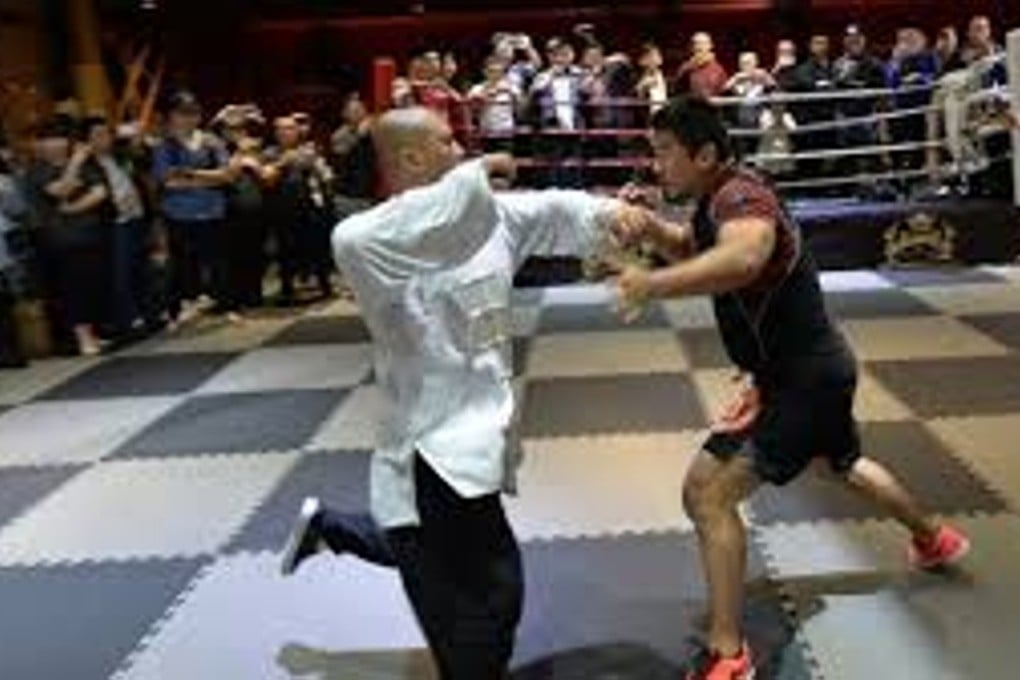Xu Xiaodong, the Chinese MMA fighter challenging fake kung fu, gets backing from Shaolin Temple monk
- Shaolin Temple abbot says Xu Xiaodong is ‘doing the right thing’
- The 40-year-old’s actions are ‘good for the traditional art form’

Chinese MMA fighter Xu Xiaodong has received support from a Shaolin Monk in his bid to expose “kung fu fakery” by pummelling traditional martial arts masters.
A video of the fighter known as “Mad Dog” brutally knocking out tai chi master Wei Lei in 10 seconds went viral last year, but his attempts to expose those who “scam” and “brainwash” people with fake martial arts has caused huge debate in China.
Xu said he had to go into hiding for several months in 2017 after claiming he was assaulted by two strangers who represented traditional martial arts.
The 40-year-old returned to the public spotlight though by beating wing chun master Ding Hao in under two minutes in April.
And abbot Shi Yong Xin of the Shaolin Temple – a Zen Buddhist monastery on Mount Songshan in Henan province which trains its monks in martial arts – has backed the actions of Xu.
“Xu’s challenge against the fakery in kung fu is good for the traditional art form. His intent is good,” Shi told Time Magazine.